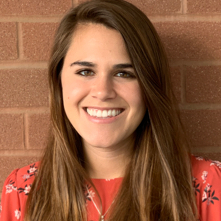Are you looking to explore body image with clients but aren’t sure where to start? Thinking you can fine tune your body image skills? Discussing body image with clients can be extremely challenging. Surprisingly, it’s not something most clinicians are taught how to do in school. Therefore, we are left to learn on our own. This blog addresses the do’s and don’ts of discussing body image with clients.
You can also read our blog 7 Tips for Improving Body Image for further information and to share with clients. And consider signing up for our clinician newsletter.
1. Do: Explore your own body image
First and foremost. Clinicians are human too. We are not immune to having our own body image struggles. Whether we have tried to change our bodies in the past. Or are currently trying to change our bodies, we (sometimes unknowingly) bring all of that into the room. Consequently, it’s important for us to be mindful of how we could be projecting our body image onto our clients.
Additionally, if we are discussing body image with clients, it is important for us to also address the weight bias we hold. For instance, do we think differently about smaller bodies vs. larger bodies? What are some preconceived notions we have about thin and fat individuals? I love these Fat Phobia and Weight Bias Expressive Writing Prompts by Resilient Fat Goddex. I’d encourage you to work through them yourself. When you feel comfortable, they can be helpful to bring into the room with clients!
PS: I would also encourage you to dive into research and articles about why dieting doesn’t work and Health at Every Size. A great starting point would be our blogs:
2. Don’t: Assure the client you “won’t make them fat.”
As clinicians, we cannot decide where our clients’ bodies are going to settle when their relationship with food improves. In fact, it’s very possible their body will settle at a higher weight. As a result of us saying, “I won’t make you get fat,” we are reinforcing fears of gaining weight. When trying to improve body image, we must learn how to build self confidence outside of how our bodies look. Under these circumstances, it’s an important reminder to clients that they are worthy regardless of how they look.
3. Do: Get curious and ask questions
Bottom line: our clients know themselves best. We are learning from them and their experiences in their bodies. Some questions/conversation starters I like to use are:
- Tell me about your relationship with your body growing up.
- When was the first time you noticed your body?
- Are there times when you like/appreciate/accept your body? What are those times like?
- Have you noticed a pattern with body image?
- How does exercise or movement affect body image?
- Is there anyone in your life who has a great body image? Who are they? What’s it like to see them appreciate their bodies?
- How do you (or how can you) show your body respect? For example, getting enough sleep, eating regularly, taking medications, etc
4. Don’t: Weigh clients
Although this falls in the “don’t” category, I do acknowledge this isn’t a black and white “don’t.” There could be some clients who are actively weight restoring or medically compromised and knowing weight might be one factor in their recovery. In this case, I’d recommend a blind weight. But, for the majority of clients, getting on the scale and seeing the number isn’t helpful.
In my experience, the scale can be a triggering and traumatizing experience. Whether or not this is the intention, weighing oneself reinforces the importance of the number. And that’s exactly what we’re trying to get away from. Clients do not need to know the number. They do not need reassurance that their weight isn’t changing. Again, that reinforces the fear of gaining weight.
5. Do: Discuss values
I have found it incredibly helpful to discuss values and to draw parallels to body image. Start out by asking clients to identify their top 3-5 values. You can give them a list if they can’t think of anything off the top of their heads. I also like to ask clients, “to what degree do you value beauty?”
We will have a discussion about how their eating disorder prevents them from living closer to their values. From there, also discuss the value of “beauty” and what that means on a deeper level. Perhaps it could mean belonging, fitting in, or feeling confident.
6. Do: Your own work
As I mentioned before, it’s only natural for our own biases and body image “stuff” to come up while discussing these topics with clients. Hence, it is extremely beneficial for us to get our own supervision. To read blogs. To take courses or webinars. In effect, we can better support our clients in navigating these tricky topics.
Some questions to ask yourself and possibly take to a supervisor:
- What do I think of when I think of the word thin? Fat?
- Do I hold biases toward people in larger bodies?
- What privilege do I have when it comes to body image? For insatnce, thin, able bodied
- How do these privileges show up in session? And how can I address them with my clients?
Next Steps to Help Clients with Body Image
Above are just some of the few “dos” and “don’ts” of addressing body image with clients. Thank you for reading this blog. Hopefully you found some helpful tips here to get you started. Feel free to read and share our Discussing Body Image with Clients Handout.
If you’re looking for supervision on eating disorder clients and talking about body image, please visit our For Clinicians page. If you’re looking to refer a client, head to our contact us page. And if you want more information on us and whether or not we’d be a good fit for your clients, we’d love to set up a meeting with you in person or via zoom. Please contact me at alex@couragetonourish.com.
Courage to Nourish is a group of eating disorder specialized dietitians. We have in person locations in Alexandria, Virginia, Columbia, Maryland. and College Park, Maryland. We offer virtual services across the state of Virginia, Washington DC, Pennsylvania, and Colorado. We offer individual nutrition therapy. As well as support groups. We would love to guide you in building a better relationship with food.
Contact us for more information. And to schedule a discovery call. Also, sign up for our client or clinician newsletter!
Take one of our eating disorder quizzes:

Helping my clients cultivate meaningful connections and interests outside of their eating disorder is a true passion of mine. I like to think my clients and I are on a team to navigate recovery. I love working with high school and college students as well as athletes seeking to have a better relationship with exercise. I am a proud anti-diet dietitian and work with my clients through a Health At Every Size © and intuitive eating framework.


